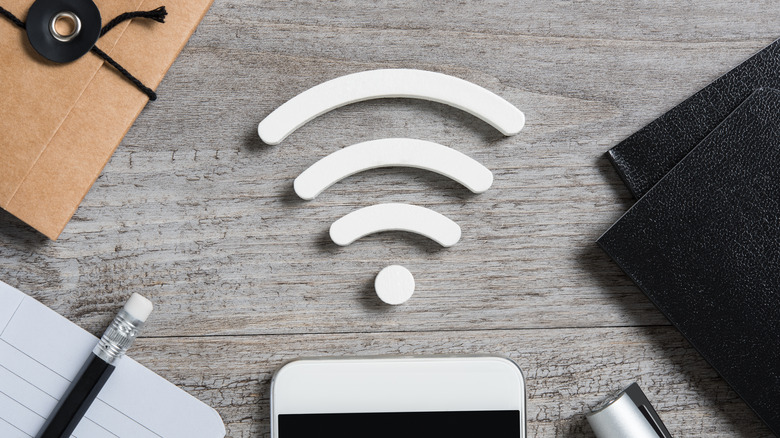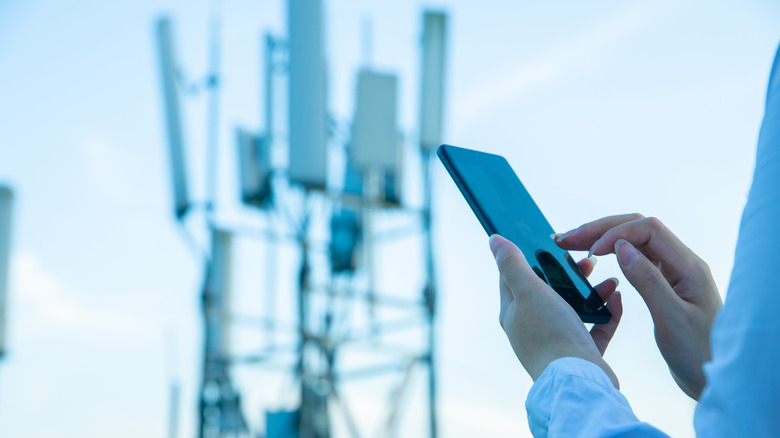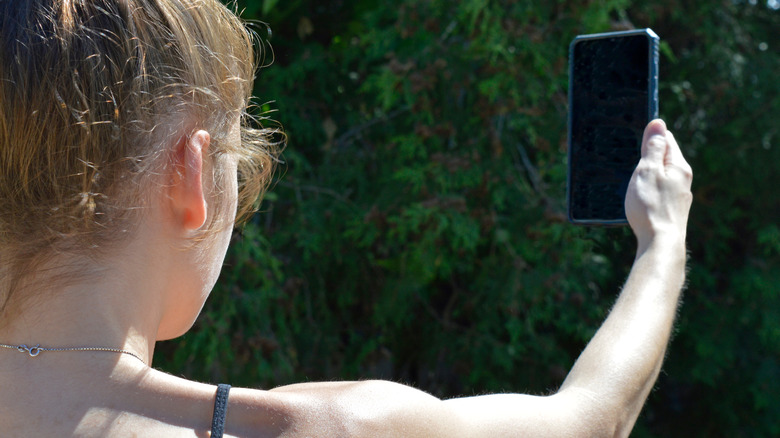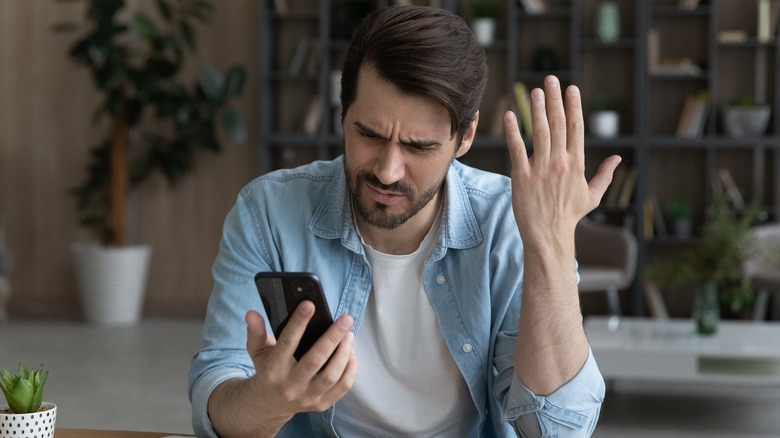Signal Booster Cell Phone Apps Are A Scam (Even The 'Best' Ones)
It happens in the movies and real life — you need to make an important phone call or access something online, but your phone shows no bars at worst or has a spotty connection at best. The solution is usually a trek to a location where you get better reception, rebooting your phone, toggling your SIM off and then on again, or, if you're lucky enough to be close to a good Wi-Fi signal, just switching to that.
But what if you want an easier solution or you're trapped in an abandoned summer camp by a masked horror villain? Going through all those steps can be annoying and time-consuming, so it would be much more convenient if there were just an app. This is where signal booster apps come in. They promise to get you a better cell signal, possibly for a fee.
The problem is pretty much every app that claims to boost your cell signal artificially is a scam, and they are more likely to slow your phone down and drain the battery than to improve your cell signal.
Which factors impact your cell signal?
To understand why these apps are incapable of actually boosting your signal strength, it helps to understand how the strength of your signal is determined. Three broad factors impact the strength of the signal your phone receives: technical limitations on the signal itself, the environment around you, and your device itself.
When it comes to the technical limitations of the signal, they usually include the distance the signal has to travel from the nearest cell tower, the power of the tower's transmitter, the type of signal being broadcast (2G/3G/4G/5G), and the bandwidth passing through the tower you are connected to. The worse any of these factors are, the weaker your connection will be.
As for the environment around you, its impact on signal strength is relatively straightforward — things between your device and the cell tower will weaken the signal. For instance, if you are in a valley or tunnel, surrounded by buildings, or even in a car, those physical obstructions can be enough to prevent your phone from connecting effectively. Environmental conditions and dense foliage can also negatively impact your cell signal.
Naturally, no app can have any impact on those factors, which leaves your phone itself. Here, two main factors impact your signal — the gain of your phone's antennae and their efficiency. However, there's little, if anything, that an app can do to improve matters.
Can an app really improve connectivity?
The gain and efficiency of your phone are intrinsic to the antenna on your phone and thus can't be adjusted. However, a couple of factors that can be changed are the power of the outgoing signal and how often your phone searches for a new incoming one. You might notice it heating up and your battery life dropping when you are in an area with lousy reception — that's your phone trying to boost the power of the outgoing signal and searching for other towers to which it can connect in hopes of restoring connectivity.
Once you factor all of this in, you also have to consider that there is no reason your phone won't do everything within its power (and within reason) to get you the best possible signal quality. The makers of your device will have already programmed it to make a tradeoff between getting you a good signal, draining the battery, and overheating. A phone that's dead or on fire is useless, even if you are standing at the base of a transmission tower.
A third-party app is unlikely to be able to make any useful difference, as the manufacturers will have already optimized your phone adequately. If anything, one of these so-called signal-boosting apps might override the internal power and heat controls set by the manufacturer, risking damage to your device.
So what do these apps do?
Most signal-boosting apps partially or fully automate processes you would otherwise do manually, and none of them can boost the signal your device receives. Many simply turn your mobile data and Wi-Fi on and off automatically, which you can do on your own.
Apps like Glasswire are more helpful and will monitor your Android device's internet traffic, so you can see how much data each app sends and receives. You can then look at removing or throttling apps that may be hogging your device's bandwidth, thus making your connection seem worse. This won't improve the signal your phone is receiving, but it should free up data that was being siphoned off.
Other apps, such as Network Cell Info Lite & Wi-Fi, will show you where the towers in your vicinity are, so you can get closer to one to receive a stronger signal. Again, while very useful, this app does not boost your signal. It will just tell you which way to move to access a stronger signal from a transmission tower.
Suppose you want to improve your connectivity in a specific location rather than downloading a misleading app. In that case, you will be better off looking into problems with your SIM card or phone configuration, switching to a provider with better coverage, or investing in dedicated signal repeaters/boosters.



